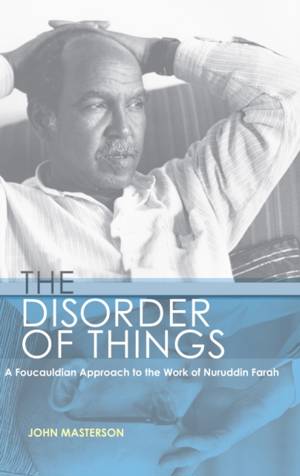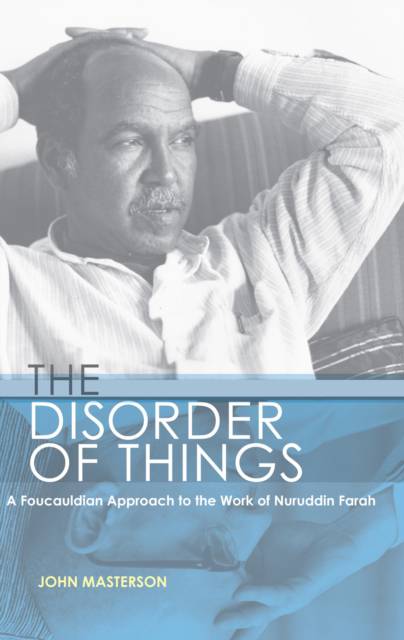
- Retrait gratuit dans votre magasin Club
- 7.000.000 titres dans notre catalogue
- Payer en toute sécurité
- Toujours un magasin près de chez vous
- Retrait gratuit dans votre magasin Club
- 7.000.0000 titres dans notre catalogue
- Payer en toute sécurité
- Toujours un magasin près de chez vous
The Disorder of Things
A Foucauldian Approach to the Work of Nuruddin Farah
John Masterson
Livre broché | Anglais
33,95 €
+ 67 points
Description
Nuruddin Farah is widely regarded as one of the most sophisticated voices in contemporary world literature. Michel Foucault is revered as one of the most important thinkers of the twentieth century, with his discursive legacy providing inspiration for scholars working in a range of interdisciplinary fields. The Disorder of Things offers a reading of the Somali novelist through the prism of the French philosopher. The book argues that the preoccupations that have remained central throughout Farah's forty year career, including political autocracy, female infibulation, border conflicts, international aid and development, civil war, transnational migration and the Horn of Africa's place in a so-called 'axis of evil', can be mapped onto some key concerns in Foucault's writing most notably Foucault's theoretical turn from 'disciplinary' to 'biopolitical' power. In both the colonial past and the postcolonial present, Somalia is typically represented as an incubator of disorder: whether in relation to internecine conflict, international terrorism or contemporary piracy. Through his work, both fictional and non-fictional, Farah strives to present alternative stories to an expanding global readership. The Disorder of Things analyses the politics and poetics that underpin this literary project, beginning with Farah's first fictional cycle, Variations on the Theme of an African Dictatorship (1979-1983), and ending with his Past Imperfect trilogy (2004-2011). Farah's writing calls for a more refined, substantial reading of our current geo-political situation. As such, it both warrants and compels the kind of critical engagement foregrounded throughout The Disorder of Things. This book will appeal to students, academics and general readers with an interest in the interdisciplinary study of literature. Its engagement with theorists, drawn from postcolonial, feminist and development studies, set against the backdrop of a host of philosophical and sociological discourses, shows how such intellectual cross-fertilisation can enliven a single-author study.
Spécifications
Parties prenantes
- Auteur(s) :
- Editeur:
Contenu
- Nombre de pages :
- 320
- Langue:
- Anglais
Caractéristiques
- EAN:
- 9781868145706
- Date de parution :
- 01-04-13
- Format:
- Livre broché
- Format numérique:
- Trade paperback (VS)
- Dimensions :
- 155 mm x 229 mm
- Poids :
- 476 g

Les avis
Nous publions uniquement les avis qui respectent les conditions requises. Consultez nos conditions pour les avis.






